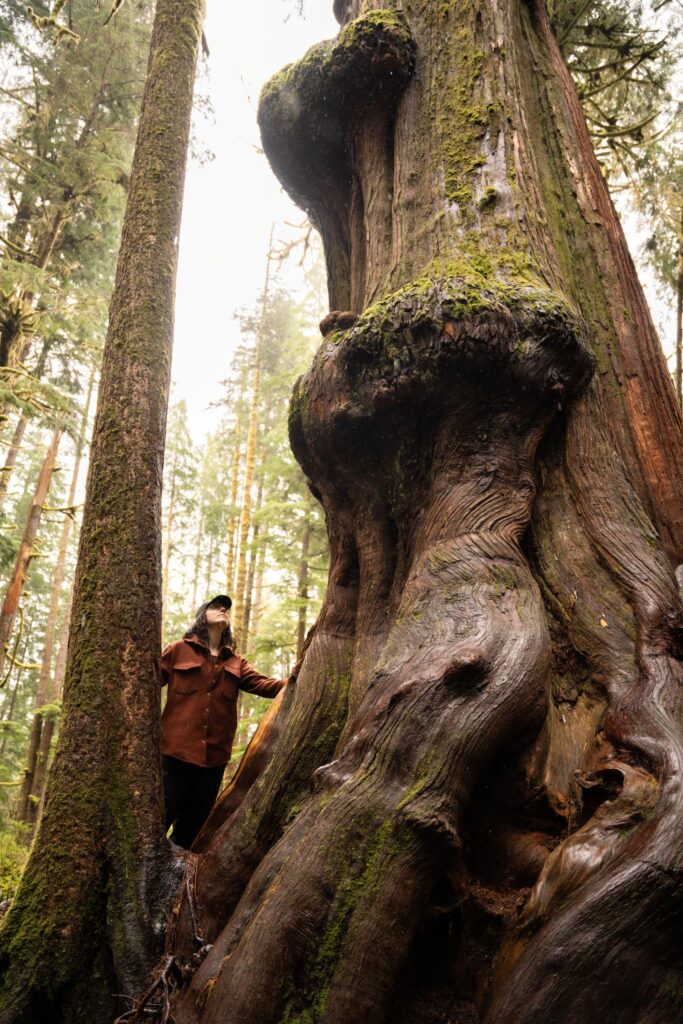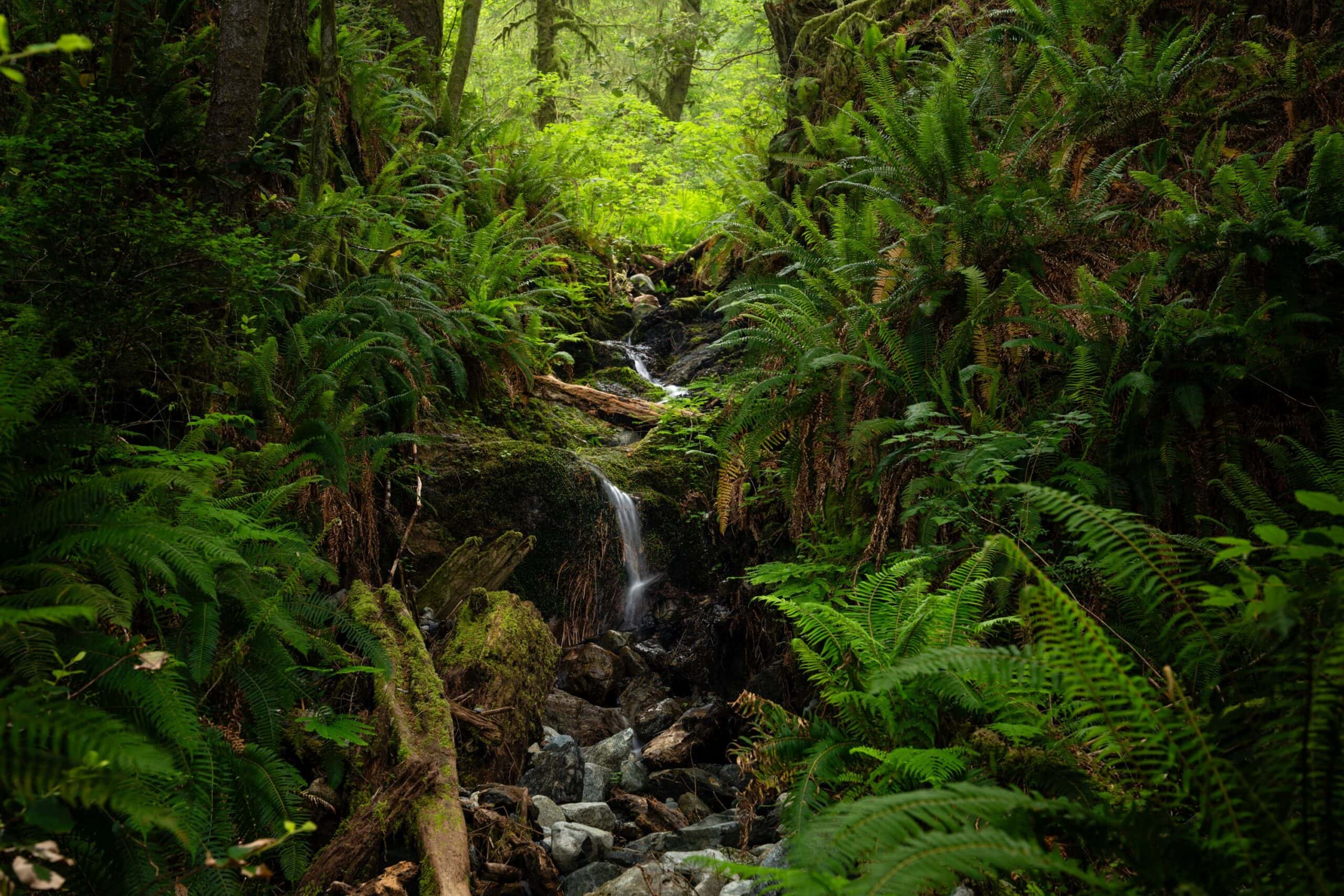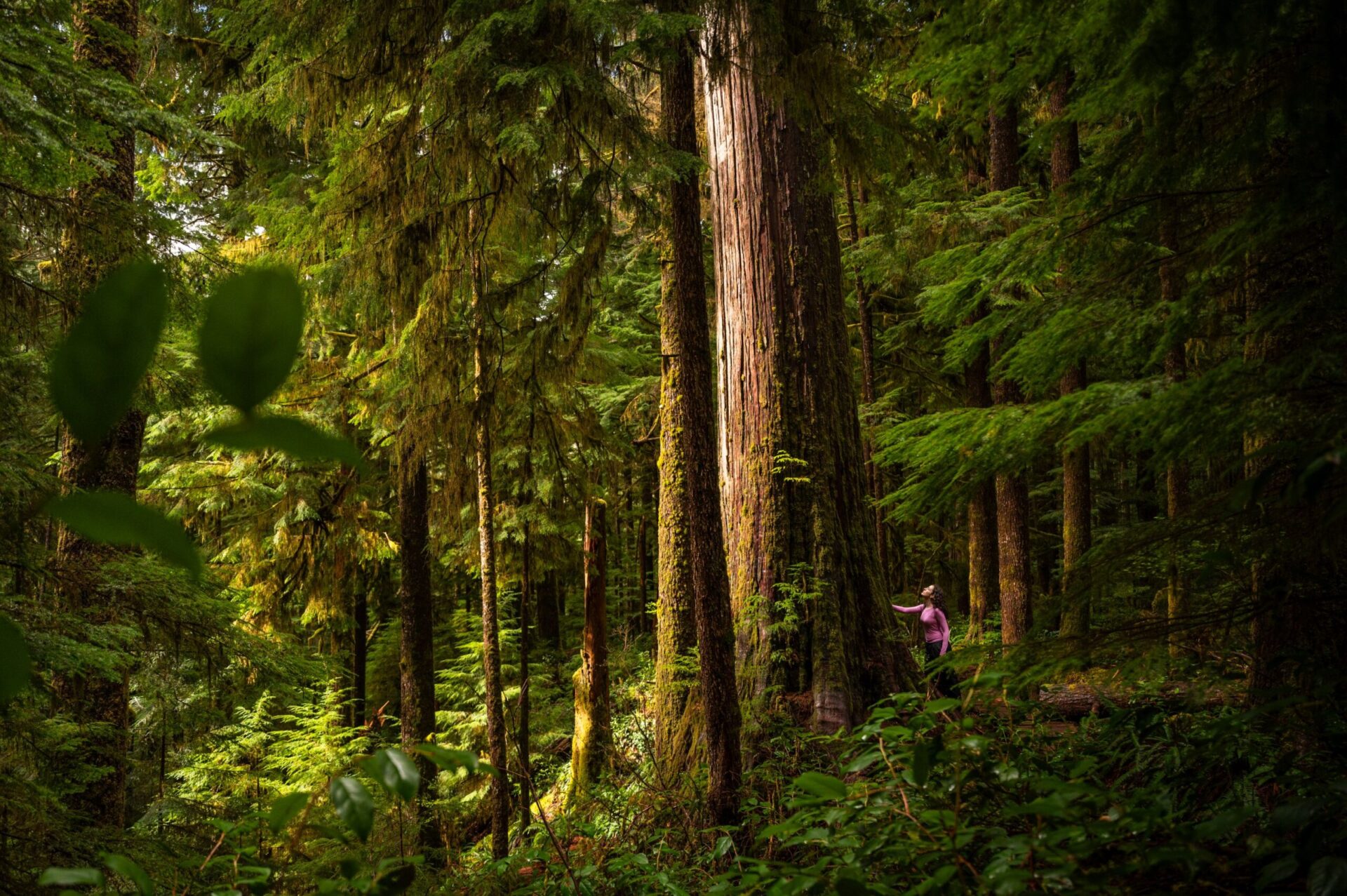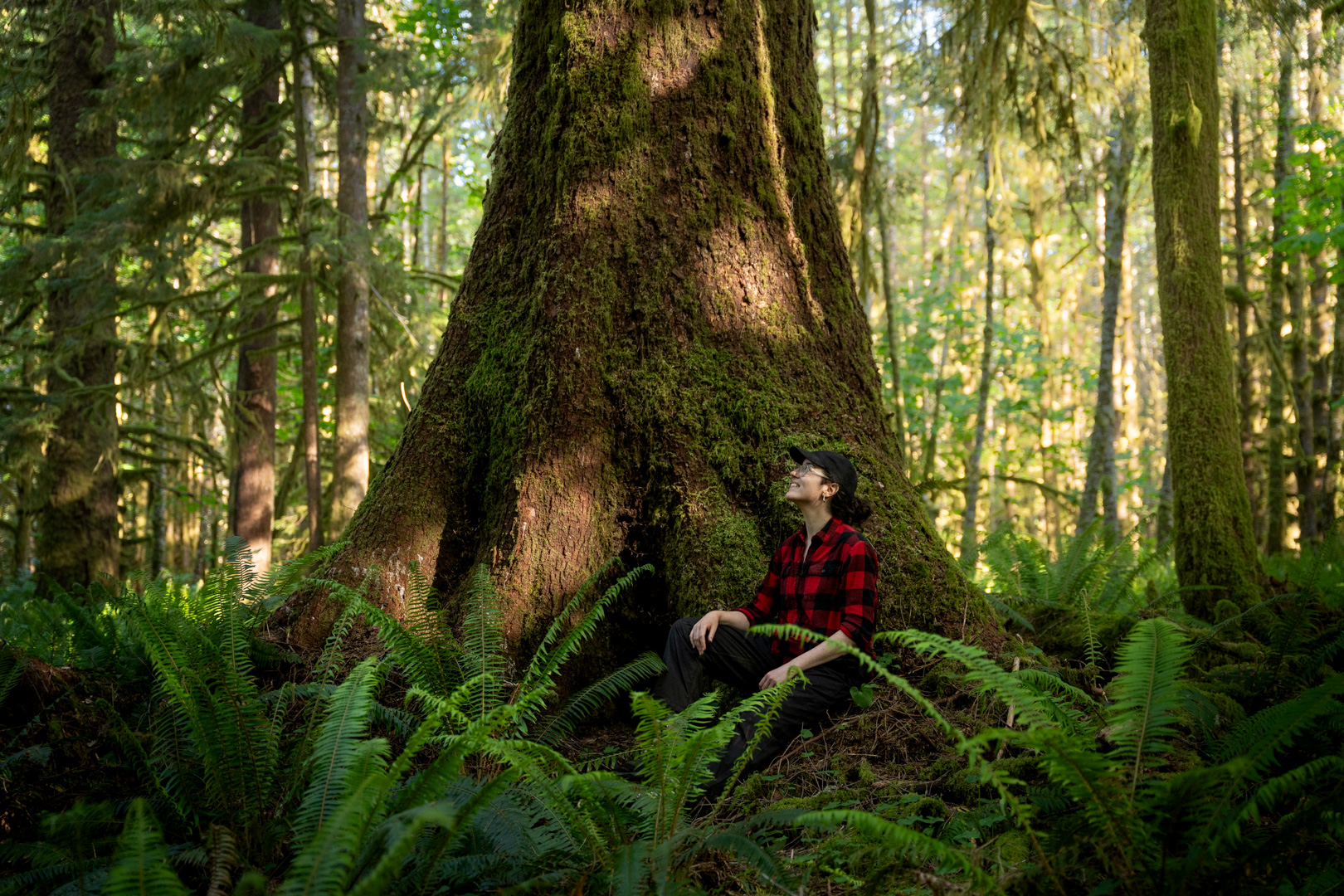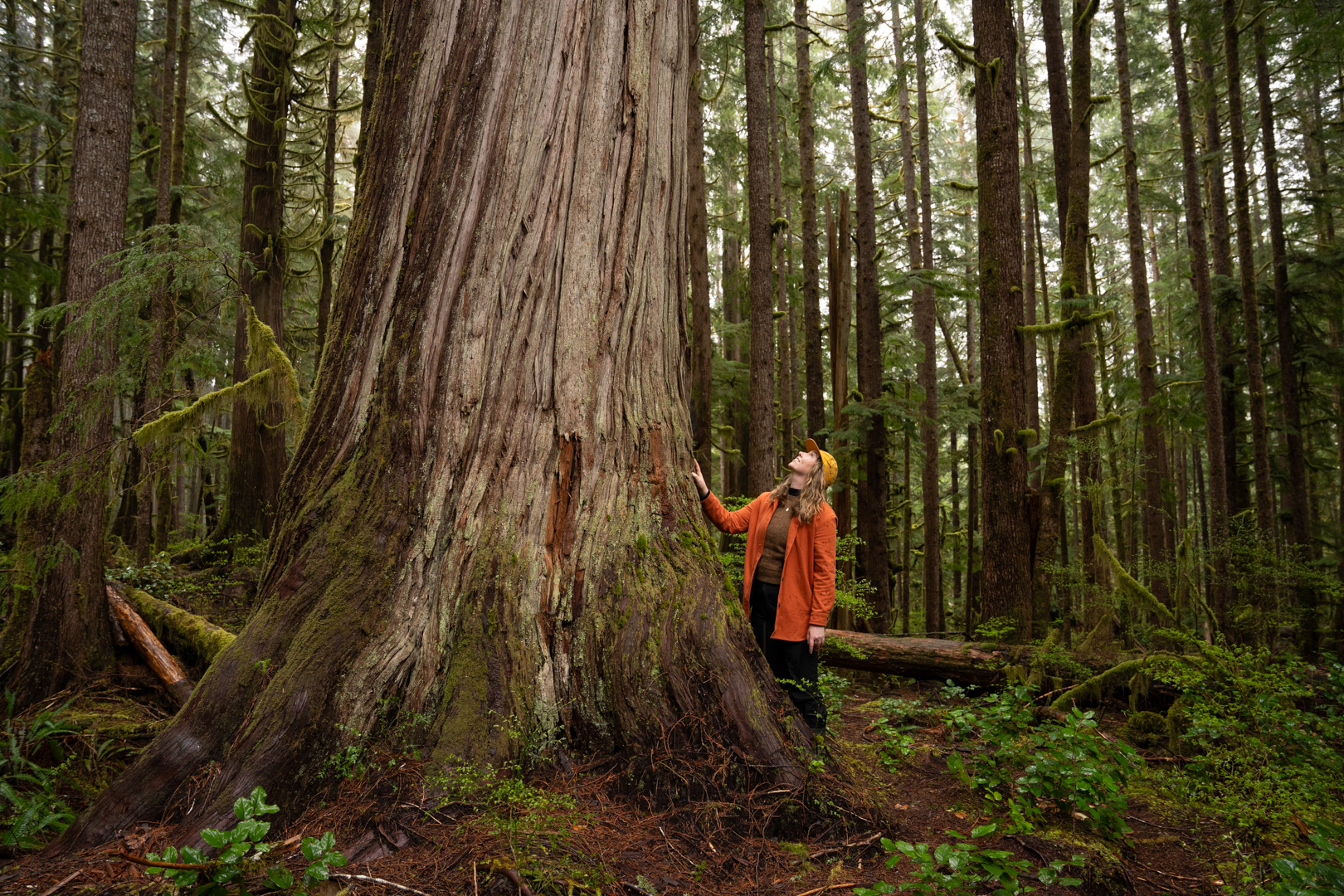Paddling together for səlilwət (Burrard Inlet)
Stories
Paddling together for səlilwət (Burrard Inlet)
May, 2025
15 years in, Tsleil-Waututh Nation’s fight against the Trans Mountain Pipeline expansion project (TMX) continues, uplifted by interfaith prayers of support. Read this report back about the water ceremony hosted by Tsleil-Waututh Sacred Trust and Sierra Club BC.

Elected councillor of TWN and member of Sacred Trust Charlene Aleck (right), and Ta7ah Amy George, Elder and Tsleil-Waututh matriarch (left) leading the water ceremony in front of the Burnaby TMX terminal (Photo by Mya Van Woudenberg/SCBC).
Uniting for the Inlet
Tracing the forested coastline across the shore from Whey-ah-Wichen (Cate’s Park), the enormous oil drums of the Westbridge Marine Terminal, the oil handling facility for the Trans Mountain Pipeline (TMX), stand out in stark contrast to the beauty of the inlet.
On May 25th, səlilwətaɬ Nation’s (Tsleil-Waututh Nation, TWN) Sacred Trust Initiative and Sierra Club BC (SCBC) hosted their second annual Interfaith Water Ceremony on the shore of Whey-ah-Wichen. Over 200 people and 25 faith leaders responded to TWN’s call. The ceremony aimed to bring diverse communities together to renew commitments to care for the inlet as it faces threats on many fronts, including the TMX pipeline and tanker project.
Rueben George, a member of TWN and manager of Sacred Trust Initiative, welcomed everyone by sharing stories of the environmental restoration work the nation has undertaken in the Inlet. One example is the hand-tying of eelgrass. Eelgrass beds act as nurseries for marine invertebrates, finfish, and birds. They also bring numerous benefits to overall ecosystem health including cleaner waters and increased food sources which in turn sustain larger wildlife. Rueben recounted that thanks to the eelgrass restoration, there has been an increase in herring populations, and that he recently saw a grey whale feeding in the Inlet for the first time in his life.
Eelgrass tying is just one example of the numerous ways TWN has been working to protect the Inlet since time out of mind. A critical initiative that was created to oppose the pipeline, Sacred Trust’s environmental assessment bolstered TWN’s legal challenge of the project, resulting in TWN winning the court case and stopping the pipeline when it was owned by Kinder Morgan. The win was short-lived, however, when the federal government of Canada under the leadership of Trudeau and the Liberal party bought the TMX pipeline, bringing the project to completion despite clear contradictions with UNDRIP and DRIPA. Millions of dollars over-budget and built in contradiction to provincial and federal law to uphold FPIC (free, prior and informed consent) for all projects on Indigenous lands and waters, TMX commenced running oil in June 2024. Now, one year later, resistance to the increased tanker traffic and risk to the Inlet has not stopped.
TWN has been fighting the pipeline for 15 years now. “I need your words of encouragement,” shared Rueben. “I need you to speak to who you believe in—your Gods, Creator, or your angels or your ancestors—to give me a message of hope,” Rueben continued. “We all need that hope. Our world needs the hope, our fish need the hope, the eelgrass need our hope— everything does.”
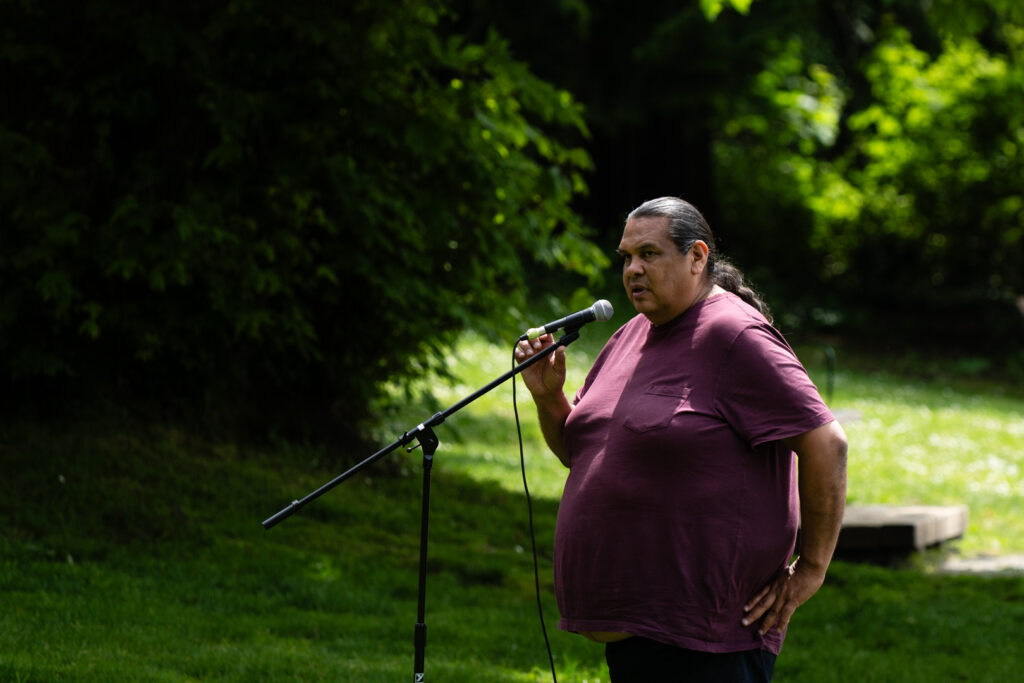
Rueben George, a member of TWN and manager of Sacred Trust Initiative, welcoming everyone to the water ceremony (Photo by Mya Van Woudenberg/SCBC).
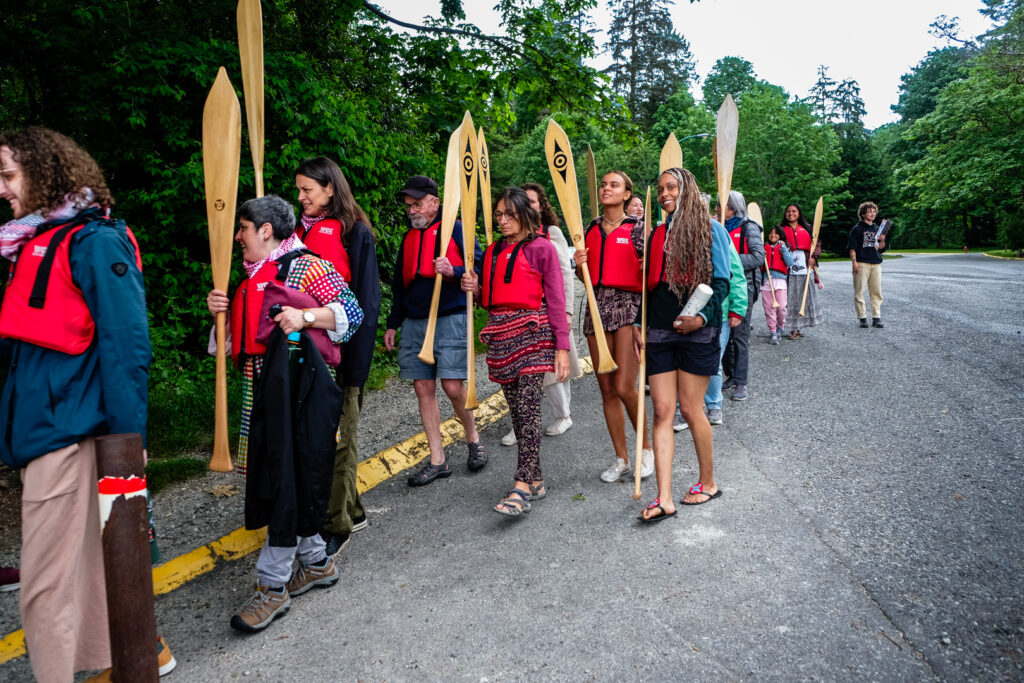
Faith leaders and community members set out to paddle across the inlet (Photo by Mya Van Woudenberg/SCBC).
Taking to the water
To begin the day’s events, sixty people set out on four ocean-going canoes just after 9:00am to make a flotilla at the TMX terminal. Personal vessels surrounded the flotilla, carrying community members of all ages who listened and witnessed.
At the terminal, elected councillor of TWN and member of Sacred Trust Charlene Aleck, and Ta7ah Amy George, Elder and Tsleil-Waututh matriarch, led the group in song and invited faith leaders to give their offerings to the Inlet from their canoes.
This major threat to the inlet comes without the consent and with the firm and continued opposition from the Tsleil-Waututh who, in 2014, released a 1,400 page-assessment (read it here) working within their own legal order and the colonially legal system to show that this pipeline should not be operational. The inlet is of immense importance to the TWN and to all the communities that live within and around these waters. A threat to the inlet presents a major threat to the TWN’s way of life and contradicts their obligations as the people of the inlet.
As the pipeline commences running bitumen, this once perceived threat has become an active threat to our communities both human and more than human. However, just because the pipeline is active does not mean that this fight is over.
After hearing from many diverse faith perspectives, Elder and Tsleil-Waututh matriarch, Ta’ah offered teachings and gratitude to close the work.
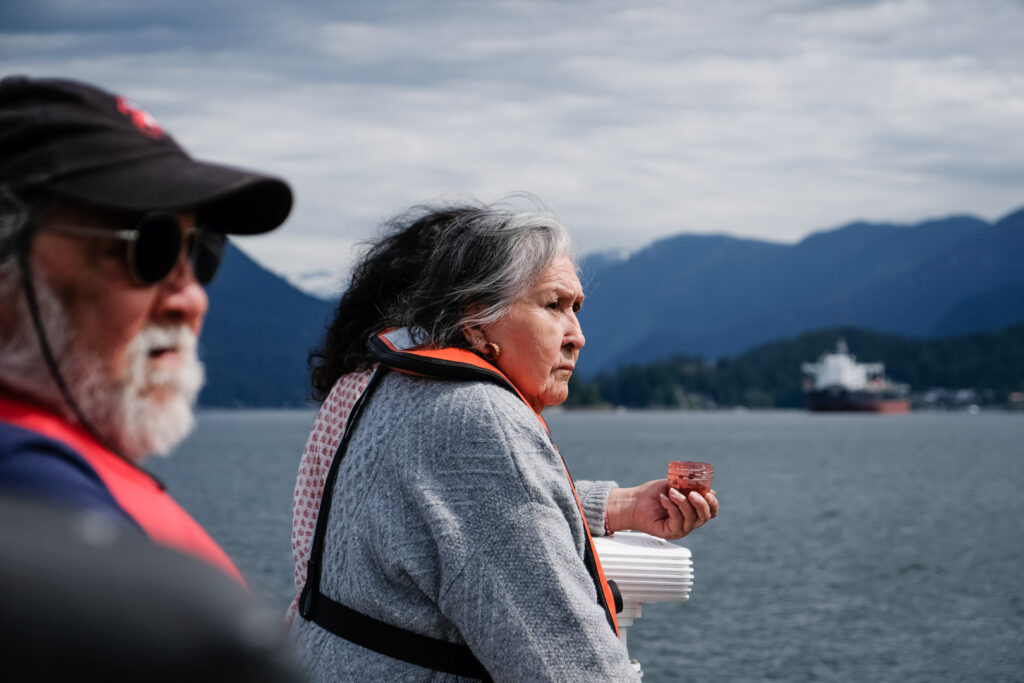
Ta7ah Amy George, Elder and Tsleil-Waututh matriarch (Photo by Mya Van Woudenberg/SCBC).
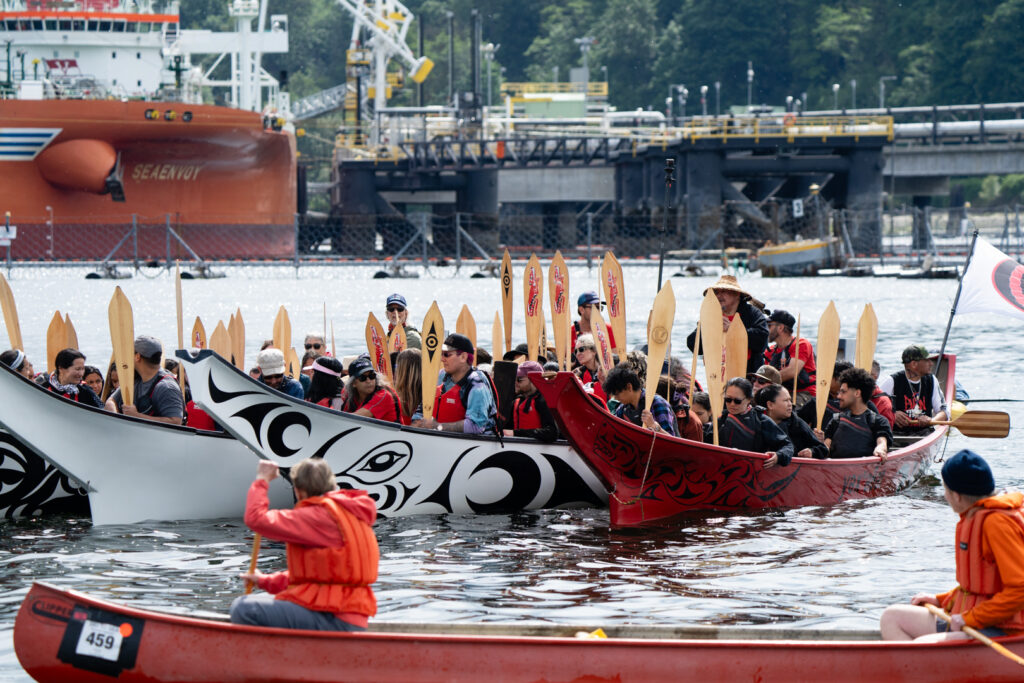
Faith leaders gathered in ocean-going canoes from Takaya Tours to share their offerings to the inlet (Photo by Mya Van Woudenberg/SCBC).
An interfaith gathering
Once back on land, over 200 people gathered to share a lunch of bannock and salmon provided by Kilus Catering’s Alicia George before settling in to listen to teachings. One by one, leaders representing Sḵwx̱wú7mesh (Squamish), Tsilhqotʼin, Filipino, Hungarian, Xinca, Muslim, Christian Palestinian, Anglican, Jewish, Buddhist, and more communities offered ritual, prayer, and learnings from a powerfully diverse well of ancestral knowledge. The clear common message shared was that each lineage fervently values caring for land, water, and the rights of all living beings, and thus that our struggles for healthy ecosystems here are connected to wider global struggles.
We were honored to be joined by two women from the Xinca Nation in Guatemala, Marta Muñoz, a delegate to the consultation process for the community San Antonio Las Flores, Mataquescuintla and Marisol Guerra, President of the Xinca Women’s Commission, who have been working to protect their own lands and waters for over 15 years from the Canadian-owned Escobal mine. This mine was built in their territory without consultation or consent. The headquarters of the company that owns and operated this mine are located right here in Vancouver. Due to the courage and leadership of the Xinca, the mine has been shut down, but there remains a need for reparations for harms done while it was in operation.
We were also honoured to hear from Joe Alphonse, former Chief of the Tsilhqot’in Nation for 16 years, who received a standing ovation from attendees. He recounted his nation’s successful win in their landmark case, silhqot’in Nation v British Columbia, which legally established Indigenous title, the conditions of title, and the process for affirming title through the Canadian court system.
Having heard from these two nations who fought and won against extractive industries, the feeling of hope in the crowd was palpable. For us, this ceremony is many things: a spiritual practice, a place for learning and connection, an offering to the lands and waters, and ultimately, a reminder that resistance continues.
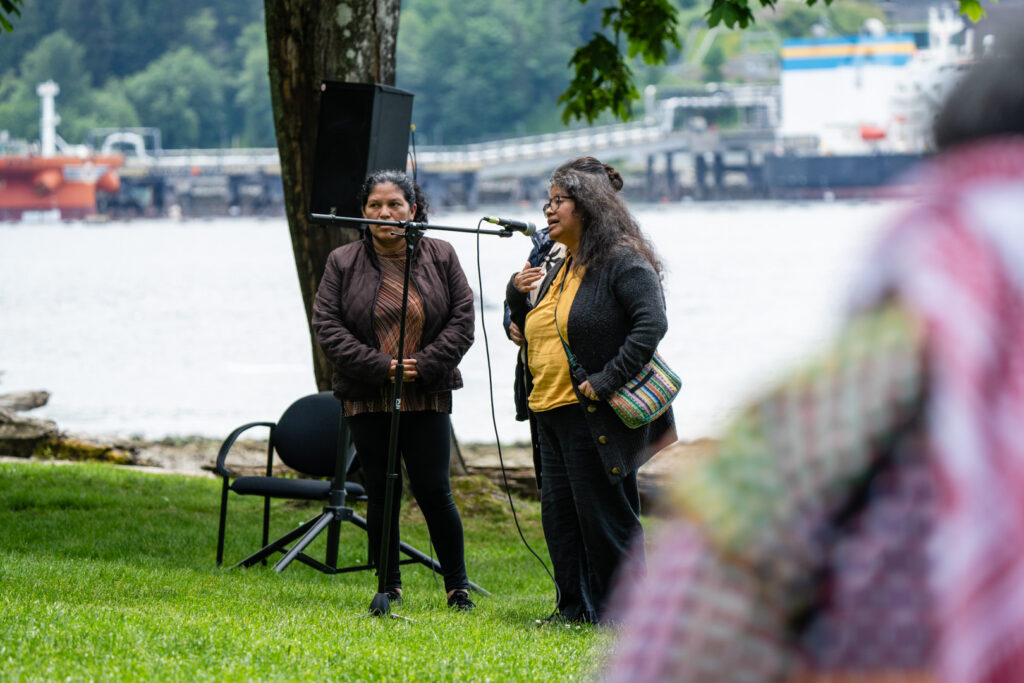
Marta Muñoz and Marisol Guerra from the Xinca Nation in Guatemala (Photo by Mya Van Woudenberg/SCBC).
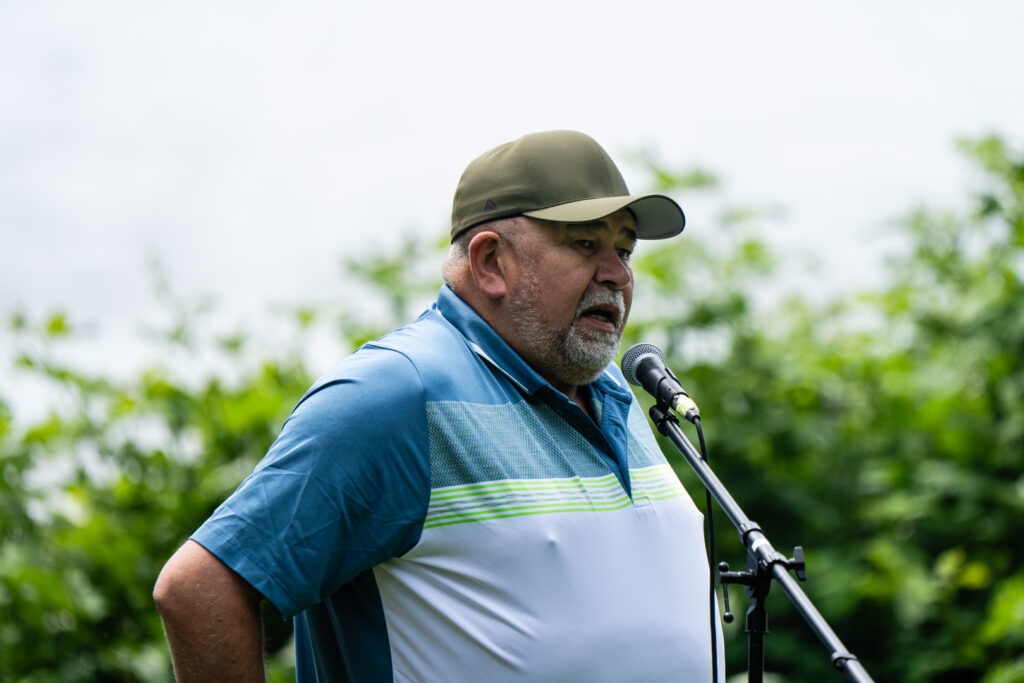
Joe Alphonse, former Chief of the Tsilhqot’in Nation (Photo by Mya Van Woudenberg/SCBC).
We continue to stand in solidarity
As though we needed more inspiration, after a day full of prayer, we stood out on the shore and witnessed two blackfish (orcas) pass through the Inlet. The work of the TWN to care for these waters has brought home beings that, due to colonization, have been absent from here for too long. For this reason and many more we continue to stand alongside TWN year after year.
Explore more stories
You can help protect healthy ecosystems
Donate today. Together, we can build a brighter future.
